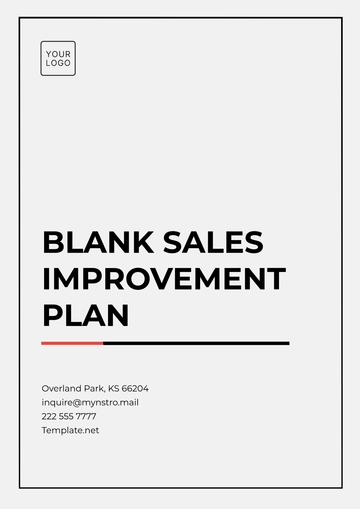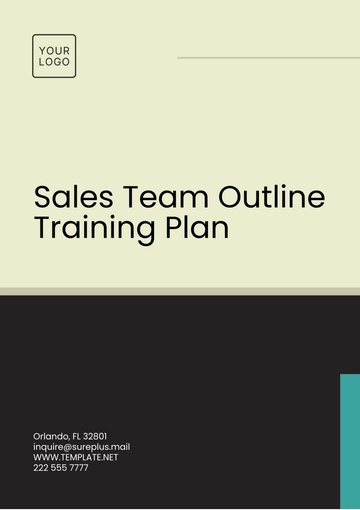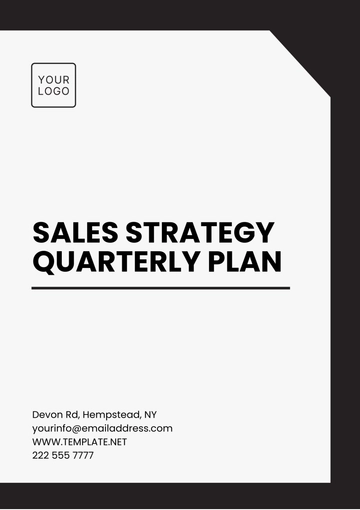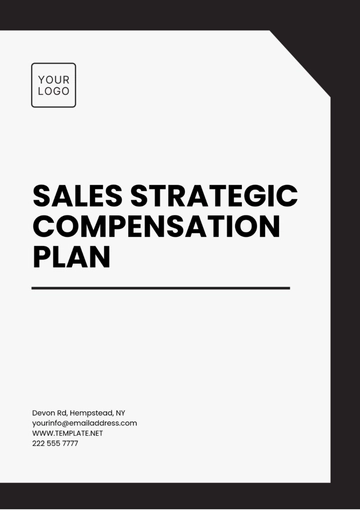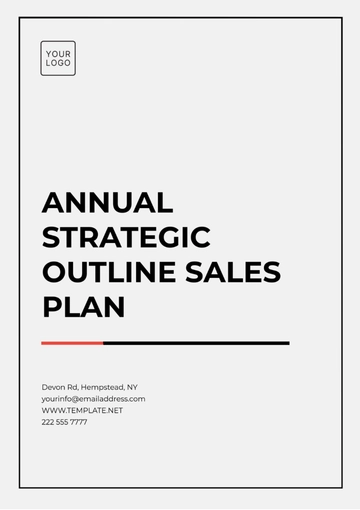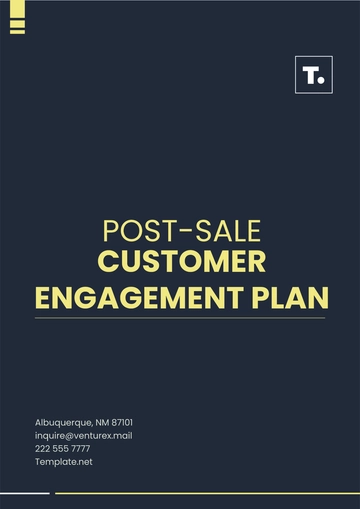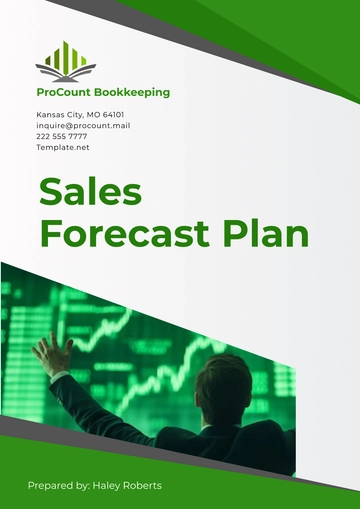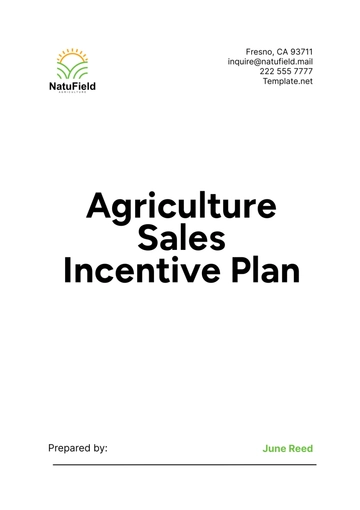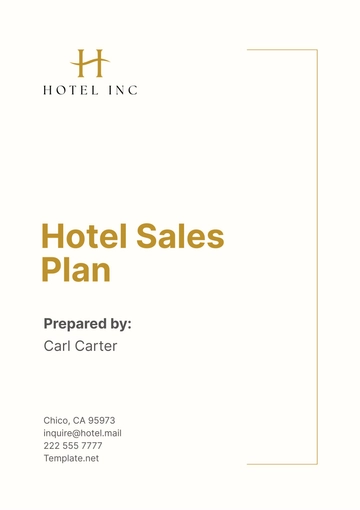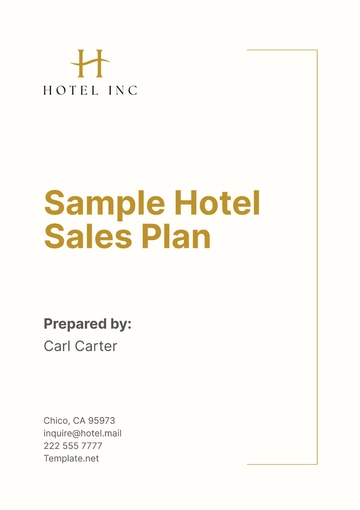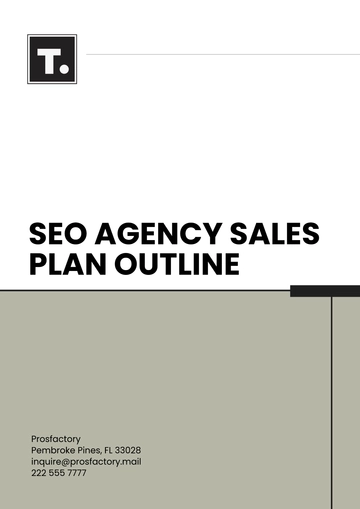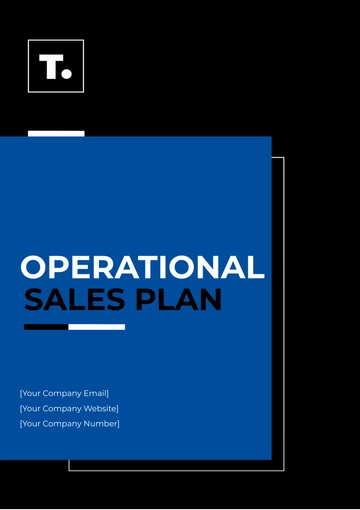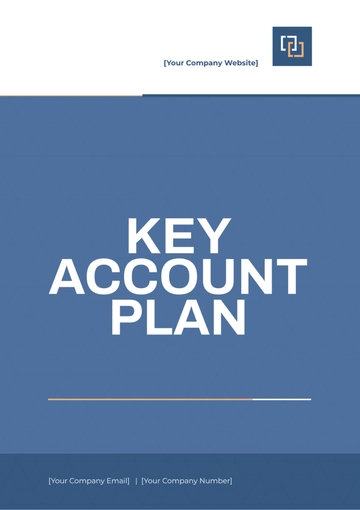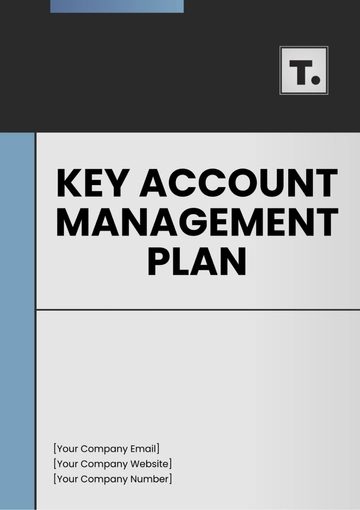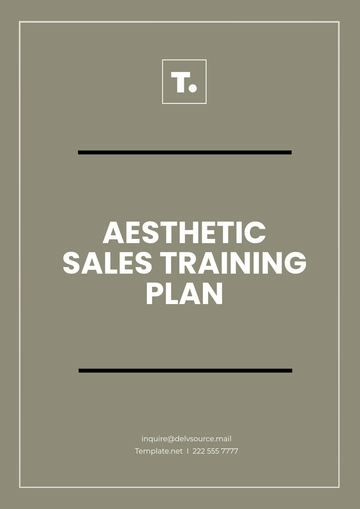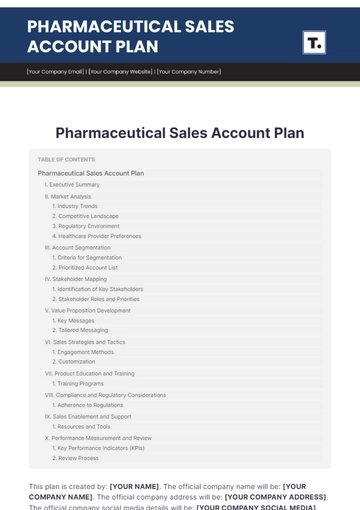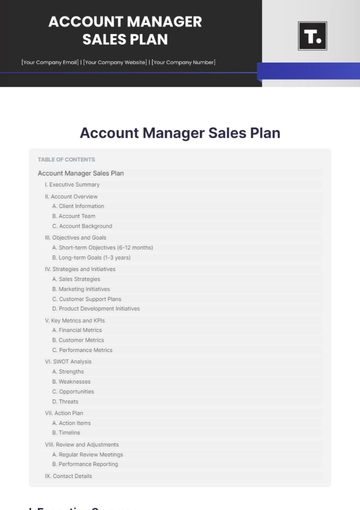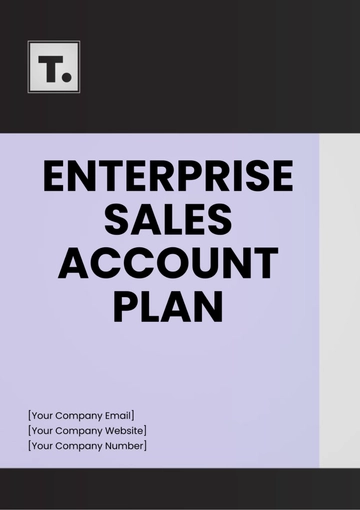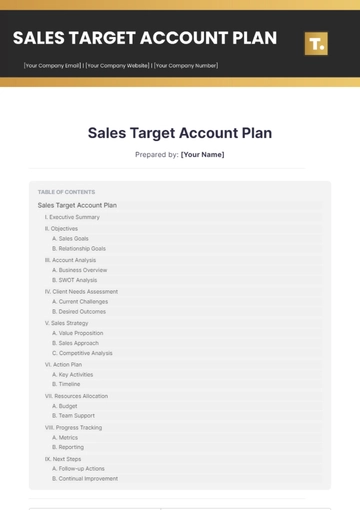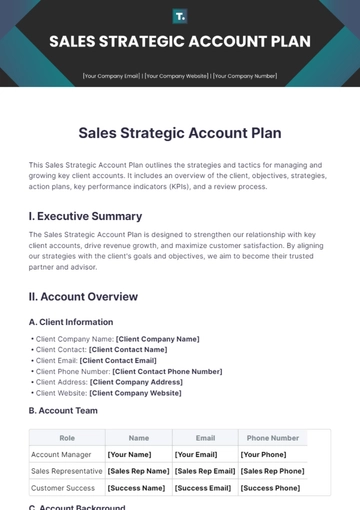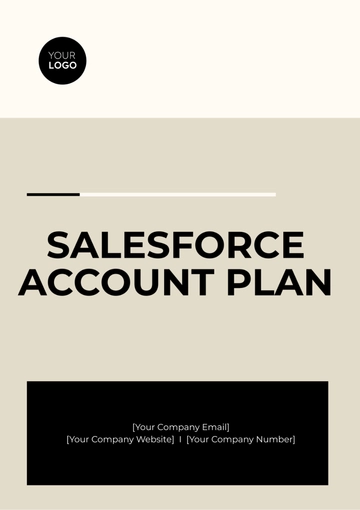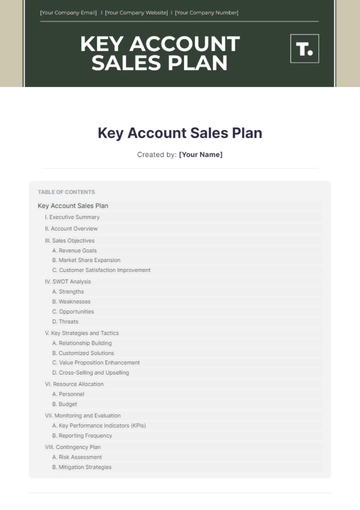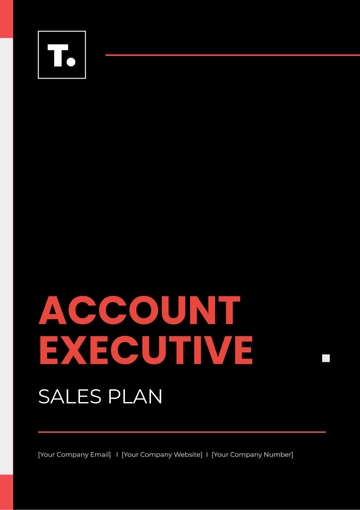Free Sales Call Plan

Written by: [Your Name]
I. Objective

This Sales Call Plan aims to provide our sales team with a strategic framework to enhance client meetings, improve engagement, effectively meet client needs, foster enduring relationships, and boost revenue. It ensures each interaction is focused, adds value, and supports our business and customer satisfaction objectives.
II. Client Background
A successful sales call demands a thorough knowledge of the client's business, competition, and history with our company, enabling the sales team to tailor their interactions to meet specific client needs and foster trust through references to previous successes.
III. Preparation Checklist
Effective preparation is the cornerstone of a successful sales call. Our preparation checklist includes several key steps to ensure that our sales team is well-equipped and informed before engaging with the client. This checklist involves:
Conducting in-depth research on the client's industry trends, market dynamics, and competitive landscape.
Reviewing past interactions, notes, and feedback in our CRM system to gain insights into the client's preferences, pain points, and previous engagements.
Preparing relevant sales materials, such as product/service brochures, case studies, success stories, pricing information, and demo presentations.
Identifying potential cross-selling or upselling opportunities based on the client's existing products/services and future needs.
Anticipating common objections or concerns that the client may raise during the sales call and preparing strategies, rebuttals, and value propositions to address them effectively.
IV. Agenda and Objectives
A well-defined agenda and clear objectives are essential for structuring a productive and focused sales call. Our agenda typically includes:
Introduction: Establishing rapport, setting a positive tone, and introducing our company, products/services, and sales team members.
Needs Assessment: Understanding the client's current challenges, goals, pain points, and expectations.
Product/Service Presentation: Showcasing the features, benefits, and value propositions of our offerings tailored to the client's specific needs and requirements.
Value Proposition: Highlighting our unique selling points, competitive advantages, success stories, and customer testimonials to demonstrate credibility and value.
Solution Discussion: Engaging in a dialogue to co-create solutions, address concerns, and align our offerings with the client's strategic objectives.
Next Steps and Follow-Up: Discuss potential next steps, action items, follow-up activities, timelines, and responsibilities to move the sales process forward.
V. Key Talking Points and Value Proposition
Our key talking points focus on articulating the unique value proposition of our products/services and addressing the client's pain points and challenges. These talking points include:
Key Talking Points | Description |
|---|---|
Features and Benefits | Highlight specific features, functionalities, and benefits of our products/services relevant to client needs. |
ROI and Cost Savings | Demonstrate the return on investment (ROI) and potential cost savings our solutions offer over time. |
Customization and Scalability | Emphasize the flexibility, scalability, and customization options available to meet client requirements. |
Case Studies and Success Stories | Share relevant case studies, testimonials, and success stories to showcase real-world results and outcomes. |
Competitive Comparison | Provide a competitive analysis showing how our offerings outperform competitors in terms of quality and value. |
VI. Objections Handling Strategies
Anticipating and effectively addressing objections is crucial for overcoming client hesitations and moving the sales conversation forward. Our objections handling strategies include:
Active Listening: Listening attentively to the client's concerns, clarifying their objections, and empathizing with their perspective.
Providing Solutions: Offering customized solutions, alternative options, or additional information to address specific objections and alleviate client doubts.
Addressing Risks: Addressing any perceived risks or challenges associated with our offerings and providing reassurances or risk mitigation strategies.
Testimonials and Social Proof: Sharing relevant testimonials, case studies, and social proof to validate our solutions and build credibility.
Closing Techniques: Employing persuasive closing techniques, such as summarizing key benefits, addressing final objections, and proposing a clear call-to-action to move towards a positive decision.
VII. Follow-Up and Next Steps
The follow-up and next steps section is crucial for maintaining momentum, nurturing relationships, and progressing towards successful outcomes. Our follow-up plan includes:
Post-Call Recap: Send a personalized post-call recap email summarizing key discussion points, action items, agreements, and timelines agreed upon during the sales call.
Additional Information: Providing any additional information, resources, or materials requested by the client to support their decision-making process.
Scheduling Follow-Up Activities: Proactively scheduling follow-up meetings, demos, or consultations based on the client's availability and preferences.
CRM Updates: Document all interactions, notes, agreements, and follow-up activities in our CRM system for tracking, analysis, and future reference.
Continuous Engagement: Engaging in ongoing communication, relationship-building activities, and value-added touchpoints to nurture long-term partnerships and loyalty.
VIII. Post-Call Evaluation and Feedback

After the sales call, conducting a thorough post-call evaluation and gathering feedback is essential for continuous improvement and optimizing our sales strategies. This involves:
Evaluation Criteria: Defining specific criteria and metrics for evaluating the success of the sales call, such as deal progression, client satisfaction, and conversion rates.
Team Feedback: Collecting feedback from the sales team members involved in the call, including their observations, challenges faced, lessons learned, and suggestions for improvement.
Client Feedback: Soliciting feedback from the client regarding their experience, satisfaction levels, concerns, areas for improvement, and future expectations.
Performance Analysis: Analyzing key performance indicators (KPIs), such as call duration, engagement levels, objection handling effectiveness, and follow-up responsiveness.
Actionable Insights: Using the gathered insights and feedback to refine our sales strategies, training programs, objection handling scripts, and customer engagement approaches for future calls.
This comprehensive Sales Call Plan serves as a strategic roadmap for our sales team, ensuring professionalism, effectiveness, and client-centricity in every sales interaction. By following this plan, we aim to build strong relationships, drive customer success, and achieve sustainable revenue growth for our organization [Your Company Name].
- 100% Customizable, free editor
- Access 1 Million+ Templates, photo’s & graphics
- Download or share as a template
- Click and replace photos, graphics, text, backgrounds
- Resize, crop, AI write & more
- Access advanced editor
Optimize your sales calls with Template.net's Sales Call Plan Template. This editable and customizable tool helps you prepare call objectives, key talking points, and follow-up actions. Create detailed plans to enhance call effectiveness and close rates. Editable in our AI Editor Tool, this template ensures structured and successful sales calls, improving client engagement and sales outcomes.
You may also like
- Finance Plan
- Construction Plan
- Sales Plan
- Development Plan
- Career Plan
- Budget Plan
- HR Plan
- Education Plan
- Transition Plan
- Work Plan
- Training Plan
- Communication Plan
- Operation Plan
- Health And Safety Plan
- Strategy Plan
- Professional Development Plan
- Advertising Plan
- Risk Management Plan
- Restaurant Plan
- School Plan
- Nursing Home Patient Care Plan
- Nursing Care Plan
- Plan Event
- Startup Plan
- Social Media Plan
- Staffing Plan
- Annual Plan
- Content Plan
- Payment Plan
- Implementation Plan
- Hotel Plan
- Workout Plan
- Accounting Plan
- Campaign Plan
- Essay Plan
- 30 60 90 Day Plan
- Research Plan
- Recruitment Plan
- 90 Day Plan
- Quarterly Plan
- Emergency Plan
- 5 Year Plan
- Gym Plan
- Personal Plan
- IT and Software Plan
- Treatment Plan
- Real Estate Plan
- Law Firm Plan
- Healthcare Plan
- Improvement Plan
- Media Plan
- 5 Year Business Plan
- Learning Plan
- Marketing Campaign Plan
- Travel Agency Plan
- Cleaning Services Plan
- Interior Design Plan
- Performance Plan
- PR Plan
- Birth Plan
- Life Plan
- SEO Plan
- Disaster Recovery Plan
- Continuity Plan
- Launch Plan
- Legal Plan
- Behavior Plan
- Performance Improvement Plan
- Salon Plan
- Security Plan
- Security Management Plan
- Employee Development Plan
- Quality Plan
- Service Improvement Plan
- Growth Plan
- Incident Response Plan
- Basketball Plan
- Emergency Action Plan
- Product Launch Plan
- Spa Plan
- Employee Training Plan
- Data Analysis Plan
- Employee Action Plan
- Territory Plan
- Audit Plan
- Classroom Plan
- Activity Plan
- Parenting Plan
- Care Plan
- Project Execution Plan
- Exercise Plan
- Internship Plan
- Software Development Plan
- Continuous Improvement Plan
- Leave Plan
- 90 Day Sales Plan
- Advertising Agency Plan
- Employee Transition Plan
- Smart Action Plan
- Workplace Safety Plan
- Behavior Change Plan
- Contingency Plan
- Continuity of Operations Plan
- Health Plan
- Quality Control Plan
- Self Plan
- Sports Development Plan
- Change Management Plan
- Ecommerce Plan
- Personal Financial Plan
- Process Improvement Plan
- 30-60-90 Day Sales Plan
- Crisis Management Plan
- Engagement Plan
- Execution Plan
- Pandemic Plan
- Quality Assurance Plan
- Service Continuity Plan
- Agile Project Plan
- Fundraising Plan
- Job Transition Plan
- Asset Maintenance Plan
- Maintenance Plan
- Software Test Plan
- Staff Training and Development Plan
- 3 Year Plan
- Brand Activation Plan
- Release Plan
- Resource Plan
- Risk Mitigation Plan
- Teacher Plan
- 30 60 90 Day Plan for New Manager
- Food Safety Plan
- Food Truck Plan
- Hiring Plan
- Quality Management Plan
- Wellness Plan
- Behavior Intervention Plan
- Bonus Plan
- Investment Plan
- Maternity Leave Plan
- Pandemic Response Plan
- Succession Planning
- Coaching Plan
- Configuration Management Plan
- Remote Work Plan
- Self Care Plan
- Teaching Plan
- 100-Day Plan
- HACCP Plan
- Student Plan
- Sustainability Plan
- 30 60 90 Day Plan for Interview
- Access Plan
- Site Specific Safety Plan


